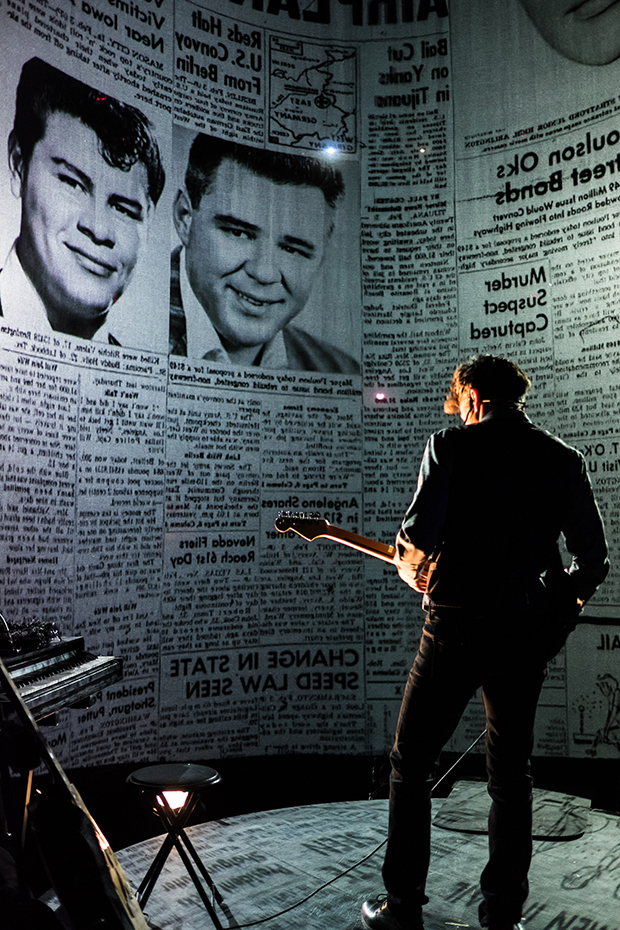Rick Miller's New Show Is Just OK, Boomer

(© Paul Lampert)
I'm gonna get OK, millennialed for this, but Rick Miller's Boom, which explores the cultural shifts during the boomer generation, is just OK. The people saying that to me will be the audience members at 59E59, many of whom experienced the tumultuous time period of 1945-69 firsthand and sit rapt for the duration of Miller's 130-minute solo show. While I admired his efforts to explore the past and connect it to the present, it's too silly to have the impact he clearly desires.
The overall focus is the entwined story of three figures in Miller's personal history: his mother, Maddie, born into a strict conservative family in Cobourg, Ontario; Viennese immigrant Rudi, who forever dreams of an American life; and Laurence, an African-American blues musician from Chicago who emigrates to Toronto to avoid the draft. On their own, the stories illuminate three very different post-World War II lives. Taken together, they symbolize the breadth of the baby boom era, with its volatile politics, Asian wars, looming bomb threats, picket fences, fancy cars, and rock and roll.
Miller did not give himself an easy task; along with writing, directing, and producing Boom, he is also its sole performer, voicing all hundred-odd characters himself. That list ranges from his mother and her friends to five presidents, two beloved news anchors, several cartoon characters, and at least a dozen music icons, singing the briefest of snippets of hits like "Great Balls of Fire," "Piece of My Heart," and "With a Little Help From My Friends." The design is chic (particularly Bruno Matte's stylish lighting and David Leclerc's multimedia projections), there is a lot going on, and it all moves very quickly.
Because Miller has so much ground to cover, Boom ends up becoming all about style and little about substance. As a slice of history, it's about as profound as "We Didn't Start the Fire" or one of those old VH1 "I Love the…" decade specials, skimming the surface but rarely going deep. He also does a disservice by not letting the figures involved speak (or sing) for themselves, since though he's a good impressionist, he's no Rich Little. (His imitations of non-Caucasian figures like Jawaharlal Nehru and Dr. Martin Luther King Jr. teeter on the border of racist.) He does a pretty good Bugs Bunny, though.
That Bugs Bunny impression is basically emblematic of Boom's tone as a whole, a piece that has a far more interesting story at its core than all the accessories around it would lead you to believe. It's a well-meaning piece of theater that feels too much like a cartoon to really have a strong impact.











